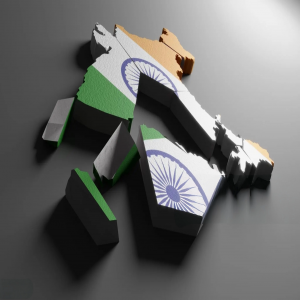
 Fr. Gaurav Nair
Fr. Gaurav Nair

The growth of hate has been palpable over the years. India, some dozen years back, was messy, yes, but one where the differences were not so pronounced or poisonous. There had been very violent strifes emerging from the experiments of the Hindutva brigade, but the hate had not become the norm. Our neighbours? Pakistan, carved out on religious lines, was already straining at its seams. Sri Lanka was tearing itself apart ethnically. We watched, quietly proud of our chaotic resilience. Diversity wasn't and still isn't our problem.
But things have curdled. The cracks aren't appearing because of our differences; they're being meticulously chiselled open. And the most potent tool in this fracturing isn't poverty or ancient hatred. It is the increasingly polemical, divisive attitude relentlessly fed by the saffron brigade and its ideological ecosystem.
Consider the language used in mainstream and social media today. It's no longer debate; it's diatribe. It's "us" versus "anti-nationals," "true Indians" versus "appeasers," and "Hindus" versus… everyone else eventually. This binary poison, constantly dripping from political podiums, is deliberately corroding the understanding India needs to function. Every disagreement has become an existential battle; compromise is seen as treason, and dialogue has died.
The North-South divide isn't just about federalism or funds anymore. It feels visceral. Southern states recoil not from Hindi itself but from the aggressive imposition framed as a patriotic duty. It dismisses their distinct cultural and historical identities as obstacles to a homogenised "New India."
It has become commonplace to hear the sneering tone from northern commentators dismissing southern resistance as "ungrateful," "separatist," or worse.
And now, we are witnessing the distressing turn within the South itself. The violent outbursts by fringe Kannadiga groups, attacking signboards or targeting non-Kannada speakers – this, too, is a symptom. It's a desperate, ugly lashing out born from a fear stoked by the centralising, majoritarian narrative. When your language and identity feel perpetually under threat from a dominant North, and when the state machinery seems aligned with that dominance, fringe elements feel empowered to take "defence" into their own hands. It is unknown as to how far the enemy has its hand in this.
We once argued fiercely over language policy, resource sharing, and reservation – but the underlying assumption was that we had to find a way to live together. Opposition was seen as a balancer which reigned in the government. There was a space, albeit contested, for multiple identities to coexist within the national idea. The saffron project replaces this with a suffocating conformity. Everyone else is pushed to the margins, forced into defensive postures, their very belonging questioned.
The assertion is that unity can only be achieved when everyone is the same, but that is not human any more. We are not splintering despite our diversity but because a powerful political force sees immense profit in turning that diversity into a battlefield. The unity we once took for granted was hard-won tolerance, now being deliberately and systematically dismantled. The shards are cutting deep, and the architects are smiling.